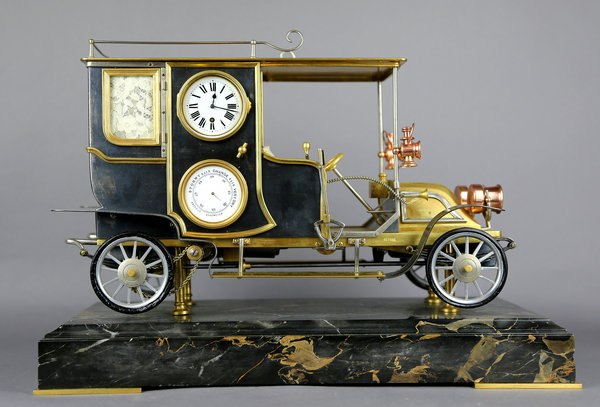Timely guide to antique clocks
 |
|
Antique clocks collected by Qing Long include French and British productions from the late 17th century to the 19th century.[Photo provided to China Daily] |
"Collectors should trace the roots of their pieces rather than purely focus on investment," says Qing.
"It is especially important for the Chinese market, where the fad for collecting has grown in recent years."
Qing says that he once wanted to buy a clock, similar to a piece housed in the Forbidden City. The auction house had estimated it to be worth around 1,000 pounds ($1,450), and he believed it was undervalued.
He then found a Chinese buyer aggressively bidding for it. That buyer spent more than 10,000 pounds on the piece.
Recounting another incident, he says he met a veteran collector in Fujian province, also in the east, who was unable to give him basic details about a watch in his collection.
"Collecting watches is not about showing your money power but about your knowledge," Qing says. "Without knowing about what you are buying, you are not a qualified collector."
Li Wei, an expert with the Chinese Horology Association, says: "Market savvy and a buyer's cultural depth should be interdependent.
"While there is not enough motivation to talk about the history of clocks and watches without an active market, people like Qing are needed to pave the way for the public to know more about what they are pursuing."
The association had once published a series of books introducing antique timepieces to the public, but Li says they had too much jargon and were not very helpful for the average collectors.
"It is also crucial for domestic publications to include foreign perspectives to help local collectors overcome their prejudices," says Li.
Qing's next book will be on antique clocks from China.
- Palace Museum clock repairman keeps history in time
- Clock ticking down on Zou
- Rare British clock gifted to Chinese royals up for auction
- Muslim teen's family seeks $15m in clock incident
- Rare bronze, gilded clock to feature at Poly International Auction autumn sale
- Excitement grows as clock ticks down to Nov 11 shopping festival
















